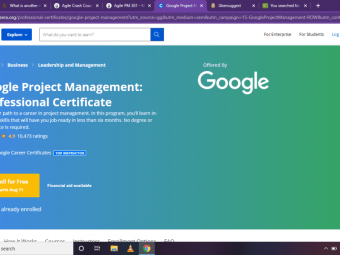As a professional engineer, you can specialize in various distinctive fields. Because there is an array of options, ranging from civil, structural, mechanical, architectural, and more; therefore, choosing a professional engineering career path can be a little challenging.
Almost a century ago, there were no specific examinations or experience required to work as a professional engineer. However, in 1907 a law was passed which assured that an exam needs to be conducted after four years of experience to work as a professional engineer.

Despite being complex, many individuals opt for this field. After all, there are tons of exciting sub-fields that one can get into.
In engineering, you’ll have various options to choose from – Civil, biomedical, mechanical, electrical, architectural, and several more. Thus, you can quickly get into the preferred field.
How is a Professional Engineer Different from an Ordinary Engineer?
Yes, engineers with a Bachelor’s degree get a job, but they hardly move up the scale in terms of employment. On the other hand, PEs can expect and continue to grow because of the continuing education and tons of experience. Here we have highlighted some points that make an ordinary engineer different from a professional engineer.
- Only a professional engineer can form, sign, seal, and forward the engineering plans to the authorities (this is for both the public and private clients).
- A professional engineer is responsible for their jobs, as well as the lives affected by their position.
- You need to pass the Principles and Practice of Engineering exam to qualify as a professional engineer. For this, you need a professional engineering degree along with 4-year relevant experience in the selected field.

Step-to-Step Guide to Become a Professional Engineer:
Whether you talk about innovative technology or infrastructural designs, engineers handle all of such things and more. If you are interested in pursuing your career in that direction, then here is a step-to-step guide to becoming an experienced and successful engineer. Have a look.
Educational Requirements:
The first step to any career in education. If you want to pursue your dream as an engineer, get yourself enrolled in a college and get that Bachelor’s degree in engineering. In the first two years of a Bachelor’s degree, you are taught the basics of engineering. While in the last two years, you have to select your major in a respective field.
Gain Experience:
Once your education is complete, you need to step into the field. You can also work as an intern during college, but if you’ve missed the opportunity back then, you can always start fresh. Gaining experience is significant to excel in this field and after you’ve worked for almost 4-years or more, you can appear for the Principles and Practice of Engineering Exam, after which you are qualified to practice as a professional engineer.

Continue your Education:
Most people often give up after their Bachelor’s. Most people don’t know that continuing your education can help in moving up a grade. Once you are done with graduation, you can enroll in a Master’s program for further education. This can help you land better jobs and higher positions with better salaries. Moreover, you can also opt for the fully-funded scholarships abroad for Ph.D. – this will give you an excellent opportunity to continue your research.
Skills you need to become an Engineer:
Engineering is not such an easy job. Other than the experience and education, you also need some skills to polish yourself. Here is a list of skills an engineer needs to add to their resume. Have a look.
- Mathematics
- Critical thinking
- Problem-solving
- Decision making
- Computer-aided design
- Software development
- Operations analysis
Trust me; once you’re proficient in even three of these skills, you can easily succeed as a professional engineer.
Average Salary of a Professional Engineer:
This is what most individuals are often concerned about – the average professional engineer salary. According to the statistics, the average salary of an engineer is around $86,500.

Conclusion:
Engineering is not an easy field. It is so much you need to learn and practice. This thorough step-to-step guide will help you pave out your engineering career path easily. If you are interested in the field and can meet the requirements, you can definitely get a high-paying job in engineering.
 Fairwin Braided Leather Dog Training Leash 6 Foot 56 Foot Military Grade H
Fairwin Braided Leather Dog Training Leash 6 Foot 56 Foot Military Grade H
 3m Reflective Dog Leash 5ft Long With Traffic Padded Handle Dog Training Leas
3m Reflective Dog Leash 5ft Long With Traffic Padded Handle Dog Training Leas
 How To Be Your Dogs Best Friend The Classic Training Manual For Dog Owners
How To Be Your Dogs Best Friend The Classic Training Manual For Dog Owners
 Classical Naptime For Tots
Classical Naptime For Tots
 Doggie Stylz Set Of 2 Reflective Therapy Dog In Training Removable Patches Wit
Doggie Stylz Set Of 2 Reflective Therapy Dog In Training Removable Patches Wit
 6 Pcs Service Dog In Trainingworkingstress Amp Anxiety Response Embroidere
6 Pcs Service Dog In Trainingworkingstress Amp Anxiety Response Embroidere
 Service Dog In Training Patch With Hook Back And Reflective Lettering For Servic
Service Dog In Training Patch With Hook Back And Reflective Lettering For Servic
 Four Paws Wee Wee Pee Pads For Dogs And Puppies Training L Gigantic Xl St
Four Paws Wee Wee Pee Pads For Dogs And Puppies Training L Gigantic Xl St
 Pny 128gb Elite X Class 10 U3 V30 Microsdxc Flash Memory Card 100mbs
Pny 128gb Elite X Class 10 U3 V30 Microsdxc Flash Memory Card 100mbs
 Academy Of Beasts V Shifter Romance
Academy Of Beasts V Shifter Romance
 Beast Academy 5a Practice
Beast Academy 5a Practice
 32gb Class 10 Sdhc Flash Memory Card Standard Full Size Sd Card Ush I U
32gb Class 10 Sdhc Flash Memory Card Standard Full Size Sd Card Ush I U














![Flutter & Dart - The Complete Guide [2022 Edition]](https://img-c.udemycdn.com/course/100x100/1708340_7108_5.jpg)










